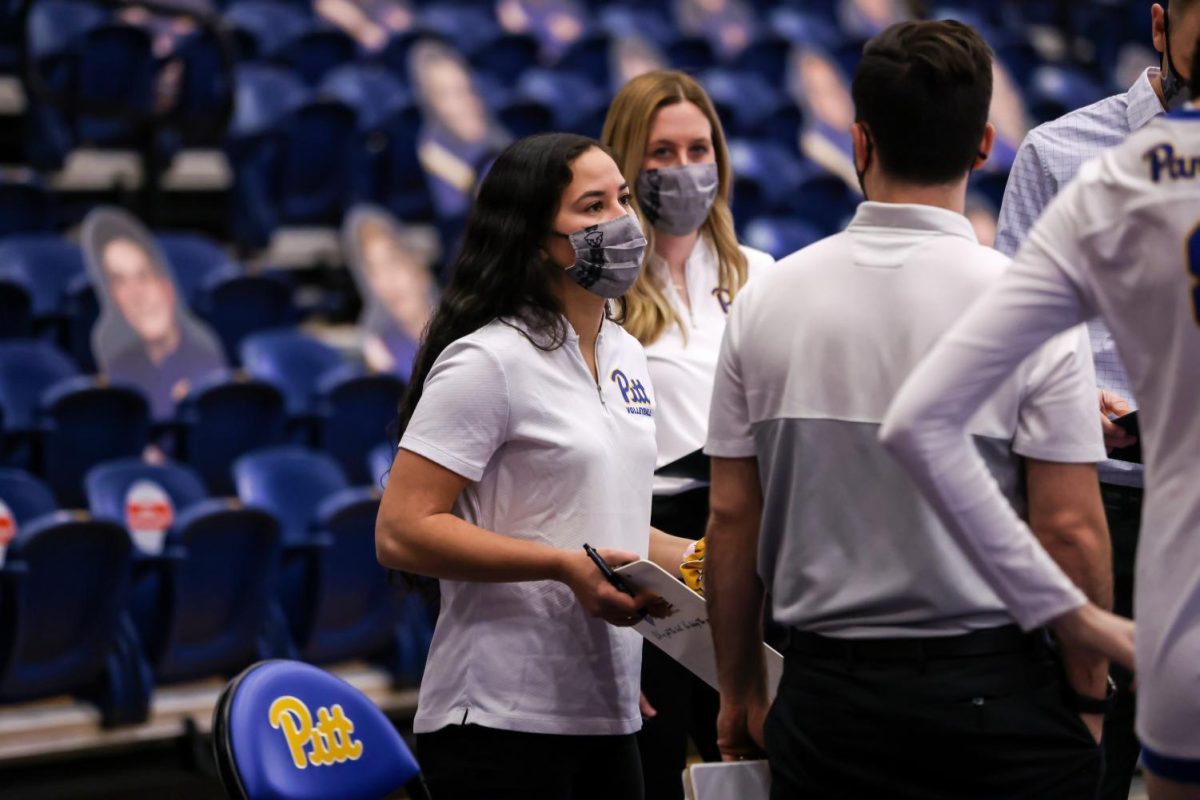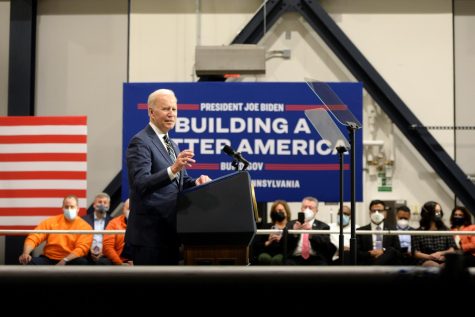Ava Luna returns to strange, unexpected roots on ‘Infinite House’
April 14, 2015
Ava Luna
Infinite House
Grade: A
Ava Luna has planted itself at the fruitful intersection of two of 2015’s least trendy influences: punk and soul. Okay, yes — punk is popular, but Ava Luna has no interest in the joy-dividing melancholy or post-confessionalist evisceration that have defined its contemporary genre. While soul revival is also ubiquitous, Ava Luna avoids heavy doses of electronic dance music and self-serious vulnerability that has infiltrated the genre.
Brooklyn’s Ava Luna is an exuberant, playful band whose volatility recalls as much high-energy Southern soul as the brainy noise punk of late ’70s New York City. However, instead of bridging the gap between these influences, the band maps the chasm’s every contour. Infinite House treasures the discrepant, which would be riskier if another band attempted it.
Whether screaming “his yellow constitution” over prickly new jack swing or writing a doo-wop torch song about carbon, Ava Luna can pull off anything — no matter how unexpected. Infinite House is so many things that albums in 2015 aren’t supposed to be: theatrical (“Steve Polyester”), droll (“Tenderize”) and mushy (“Roses and Cherries”), but it never tries too hard to be cool.
This effortless originality is what makes it so cool.
Infinite House is Ava Luna’s third album, arriving only one year after the band’s breakthrough Electric Balloon, in which it straightened out the labyrinthine kinks of its debut into hooky, if occasionally tiresome, pop songs. The album also carefully reintroduces the band’s characteristically scattershot sound of its early work, as necessary. The presence of it-producer Dave Fridmann (The Flaming Lips, Spoon, Tame Impala) no doubt enables the band’s strangeness on Infinite House.
Fridmann lends his psychedelic ambition and penchant for impossible spaces to many of the album’s highlights. The track “Black Dog” goes from Dirty Projectors balladry to crunchy doom metal in about zero seconds, and “Victoria” repeatedly resurfaces from pools of reverb as if it were recorded in the hollow chest of a living, breathing cave.
The band also continues to take advantage of its three lead singers and their superhuman harmonizing abilities. Carlos Hernandez’s hand-wringing falsetto is the perfect counterpart to Becca Kauffman’s talky Yoko-isms and Felicia Douglass’ sleepy tunefulness. Meanwhile, the lyrics are just as surreal as those in past albums, but they’re more delightfully specific on Infinite House. “Best Hexagon” describes two people “curling up” in the titular shape to “chew on gummy snacks.”
Even at its weirdest, Ava Luna is still palatable because they always seem to be having fun. Kauffman plays a nice game of pretend on “Steve Polyester,” alternating between herself and the character described in the lyrics as “a landscape” and “a ruby lined in gold shaped like a cockroach” who “smells good.” Kauffman’s voice takes on a chest-puffed confidence and tacky opulence to match, and it’s so fun you don’t even stop to wonder if it’s pretentious.
Ava Luna has a rare combination of originality and trend indifference that makes for striking music. It has a voice, which is crisp and fully realized on Infinite House. This is its most balanced album to date. At once, it’s weirder and more digestible, rawer and more ornate than anything the band has done before. It doesn’t fly its freak flag high above the listener so much as it presents the flag as a gift.








